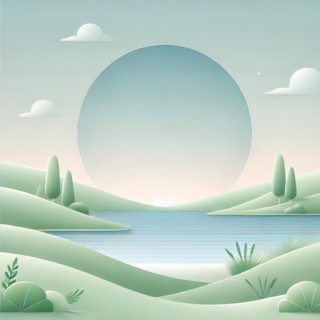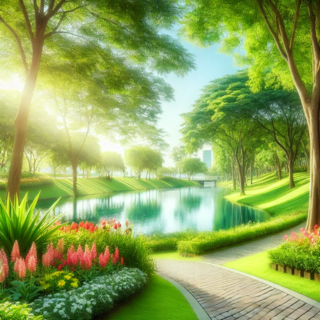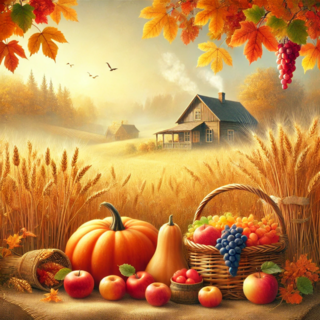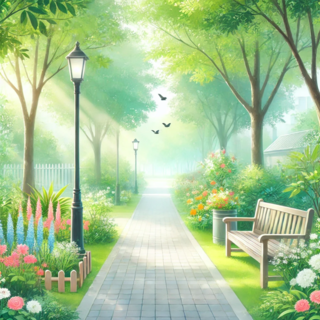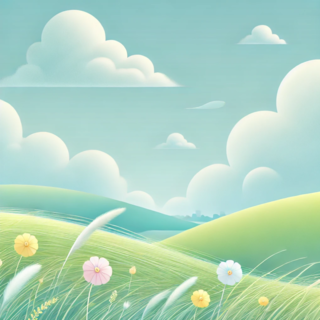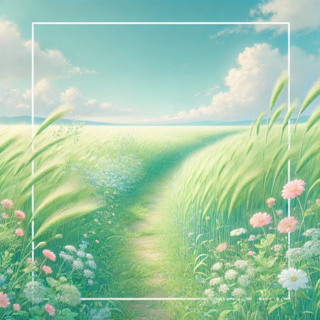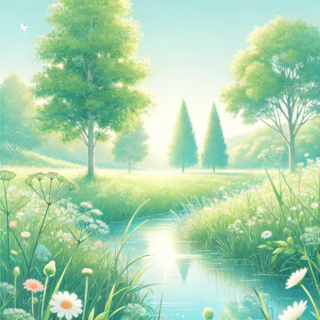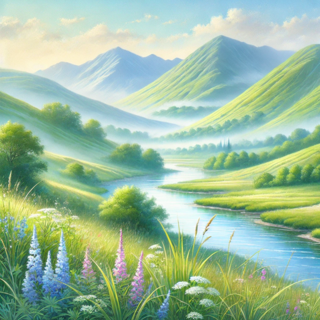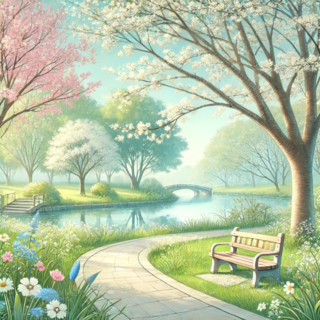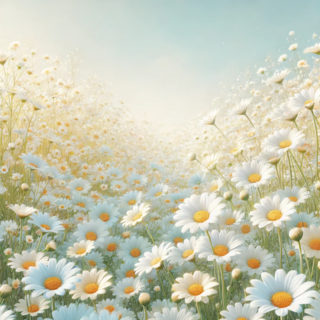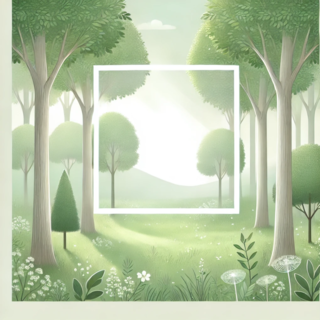新科技风格与梦幻空间的CSS3设计探索
在当今迅速发展的网页设计领域,融合新科技风格与梦幻空间元素已成为前端设计的新趋势。通过CSS3技术的强大功能,设计师能够创造出深邃且充满层次感的视觉体验,传递出创新、信任与专业性。在本篇文章中,将深入探讨如何利用CSS3实现一个专为展示风险管理与合规科技而设计的梦幻网页。
色彩方案:蓝紫渐变与强调色的巧妙运用
色彩在网页设计中扮演着至关重要的角色。以深邃的蓝色为主色调,搭配神秘的紫色渐变,不仅提升了页面的层次感,还增强了整体的科技感。亮橙色和电光蓝作为强调色,使按钮及关键信息更加突出,吸引用户的注意力。
/* 主色调蓝紫渐变 */
.background-gradient {
background: linear-gradient(135deg, #1e3c72, #2a5298, #6a5acd);
background-size: 400% 400%;
animation: gradientAnimation 15s ease infinite;
}
@keyframes gradientAnimation {
0% { background-position: 0% 50%; }
50% { background-position: 100% 50%; }
100% { background-position: 0% 50%; }
}
/* 按钮强调色 */
.btn-highlight {
background-color: #ff7f50;
transition: background-color 0.3s ease, transform 0.3s ease;
}
.btn-highlight:hover {
background-color: #1e90ff;
transform: scale(1.05);
}
上述代码通过线性渐变和关键帧动画,为页面背景添加了动态变化的蓝紫色调,营造出深邃且梦幻的氛围。按钮的强调色随着悬停效果的变化,不仅提升了互动性,还增强了视觉冲击力。
模块化网格系统与响应式设计
采用模块化网格系统,可以有效地组织页面内容,确保布局的整洁和一致性。结合CSS3的Flexbox和Grid布局,设计师能够创建灵活且适配多设备的网页结构。
/* 模块化网格布局 */
.grid-container {
display: grid;
grid-template-columns: repeat(auto-fit, minmax(300px, 1fr));
gap: 20px;
padding: 20px;
}
.grid-item {
background-color: rgba(255, 255, 255, 0.1);
backdrop-filter: blur(10px);
border-radius: 10px;
padding: 20px;
box-shadow: 0 8px 32px 0 rgba(31, 38, 135, 0.37);
}
/* 响应式设计 */
@media (max-width: 768px) {
.grid-container {
grid-template-columns: 1fr;
}
}
通过Grid布局,模块之间的间距和排列更加灵活,确保在不同屏幕尺寸下都能保持良好的视觉效果。同时,使用媒体查询实现响应式设计,使网页在移动设备上同样表现出色。
动态背景与3D建模的CSS3实现
为了增强页面的沉浸感,动态背景和3D建模是不可或缺的元素。利用CSS3的动画和变换特性,可以实现流动光效和粒子动画,为用户带来前沿的视觉体验。
/* 3D旋转效果 */
.three-d-element {
width: 200px;
height: 200px;
background: linear-gradient(45deg, #6a5acd, #1e3c72);
transform: rotateX(45deg) rotateY(45deg);
animation: rotateAnimation 10s linear infinite;
border-radius: 10px;
box-shadow: 0 10px 20px rgba(0, 0, 0, 0.5);
}
@keyframes rotateAnimation {
from { transform: rotateX(0deg) rotateY(0deg); }
to { transform: rotateX(360deg) rotateY(360deg); }
}
/* 粒子动画 */
.particle {
position: absolute;
width: 5px;
height: 5px;
background-color: #ffffff;
border-radius: 50%;
opacity: 0.8;
animation: float 5s infinite ease-in-out;
}
@keyframes float {
0% { transform: translateY(0) scale(1); opacity: 0.8; }
50% { transform: translateY(-20px) scale(1.5); opacity: 0.4; }
100% { transform: translateY(0) scale(1); opacity: 0.8; }
}
通过CSS3的关键帧动画,3D元素能够在空间中旋转,为页面增添动态的科技感。同时,粒子动画的流动效果为整体设计注入了梦幻般的轻盈感,使用户在浏览时感受到流动的视觉冲击。
流动光效与粒子动画的结合
流动光效和粒子动画的结合,进一步增强了页面的梦幻氛围。利用CSS3的动画属性,可以创建出柔和且连续的光效变化,营造出如同星空般的视觉盛宴。
/* 光效动画 */
.light-effect {
position: absolute;
width: 100%;
height: 100%;
background: rgba(255, 255, 255, 0.1);
backdrop-filter: blur(20px);
animation: lightFlow 20s linear infinite;
pointer-events: none;
}
@keyframes lightFlow {
0% { transform: translateX(-100%); }
50% { transform: translateX(100%); }
100% { transform: translateX(-100%); }
}
/* 粒子容器 */
.particle-container {
position: relative;
width: 100%;
height: 100vh;
overflow: hidden;
}
光效动画通过背景滤镜和不断移动的光线,实现了光影的流动感。而粒子容器则为页面添加了无数微小的亮点,模拟出星空般的效果,使整个页面充满了梦幻的氛围。
悬停反馈与滚动触发动画的交互设计
增强用户体验的关键在于细腻的交互设计。通过CSS3的悬停反馈和滚动触发动画,可以使页面更加生动,并引导用户的注意力集中于核心内容。
/* 悬停反馈 */
.card:hover {
transform: translateY(-10px);
box-shadow: 0 15px 25px rgba(0, 0, 0, 0.3);
transition: all 0.3s ease;
}
/* 滚动触发动画 */
.animate-on-scroll {
opacity: 0;
transform: translateY(20px);
transition: opacity 0.6s ease-out, transform 0.6s ease-out;
}
.animate-on-scroll.visible {
opacity: 1;
transform: translateY(0);
}
当用户将鼠标悬停在卡片元素上时,通过位移和阴影效果,卡片仿佛浮起,增强了互动感。同时,滚动触发动画在元素进入视口时逐渐显现,使页面内容的展示更具节奏感和层次感。
视差效果与固定导航栏的实现
视差效果为页面增添了深度感和动态感,而固定导航栏则确保了用户在浏览过程中始终能够方便地访问导航链接。借助CSS3的transform和position属性,这些效果可以轻松实现。
/* 视差背景 */
.parallax-section {
position: relative;
background-image: url('abstract-tech-background.jpg');
height: 100vh;
background-attachment: fixed;
background-size: cover;
background-position: center;
display: flex;
align-items: center;
justify-content: center;
color: #ffffff;
text-align: center;
overflow: hidden;
}
/* 固定导航栏 */
.navbar.scrolled {
background: rgba(30, 60, 114, 1);
}
通过固定定位,使导航栏始终悬浮于页面顶部,确保用户随时可以访问导航链接。而视差背景利用背景固定属性和覆盖层的结合,营造出动静结合的视觉效果,增强页面的深度感。
字体选择与图标设计
字体和图标的选择直接影响到网页的整体美感与可读性。主标题采用现代化无衬线字体,如Roboto Bold,传递出专业与现代感;正文字体则选用可读性强的Inter Regular,确保内容的易读性。
/* 字体样式 */
body {
font-family: 'Inter', sans-serif;
color: #ffffff;
background-color: #1e3c72;
}
h1, h2, h3 {
font-family: 'Roboto', sans-serif;
font-weight: bold;
color: #ffffff;
}
/* 图标风格 */
.icon {
width: 24px;
height: 24px;
stroke: #ffffff;
stroke-width: 2;
fill: none;
transition: stroke 0.3s ease, transform 0.3s ease;
}
.icon:hover {
stroke: #ff7f50;
transform: scale(1.2);
}
统一的字体和图标风格不仅提升了整体设计的和谐度,还通过细腻的悬停效果,增强了用户的互动体验。图标的线性风格与简洁设计,完美契合了新科技风格与梦幻空间的设计理念。
导航栏固定与平滑滚动效果
固定导航栏不仅提升了用户体验,还通过平滑滚动效果,使页面浏览更加流畅。使用CSS3的scroll-behavior属性,可以轻松实现这一效果。
/* 平滑滚动 */
html {
scroll-behavior: smooth;
}
/* 导航链接样式 */
.navbar a {
position: relative;
}
.navbar a::after {
content: '';
position: absolute;
width: 0%;
height: 2px;
bottom: -5px;
left: 0;
background-color: #ff7f50;
transition: width 0.3s ease;
}
.navbar a:hover::after {
width: 100%;
}
通过平滑滚动效果,用户在点击导航链接时,页面能够自然地滑动到目标位置,减少了跳跃感,提升了用户的浏览体验。同时,导航链接下方的动态线条效果,使得用户在浏览时获得更加直观的反馈。
卡片式布局与信息展示
卡片式布局是一种现代化的内容展示方式,适用于快速浏览产品亮点和案例展示。通过CSS3的Flexbox布局和阴影效果,卡片不仅具备良好的视觉层次感,还增强了互动性。
/* 卡片容器 */
.card-container {
display: flex;
flex-wrap: wrap;
gap: 20px;
padding: 20px;
}
.card {
background-color: rgba(255, 255, 255, 0.1);
border-radius: 10px;
padding: 20px;
flex: 1 1 calc(33.333% - 40px);
box-shadow: 0 8px 32px 0 rgba(31, 38, 135, 0.37);
backdrop-filter: blur(10px);
transition: transform 0.3s ease, box-shadow 0.3s ease;
}
.card:hover {
transform: translateY(-10px);
box-shadow: 0 16px 48px 0 rgba(31, 38, 135, 0.5);
}
@media (max-width: 768px) {
.card {
flex: 1 1 100%;
}
}
卡片式布局不仅适合展示丰富的信息内容,还通过响应式设计,确保在不同设备上都能保持良好的展示效果。悬停时的位移和阴影变化,进一步增强了用户的互动体验。
响应式设计的实现细节
为了适配多设备访问,响应式设计是必不可少的。利用媒体查询和灵活的布局单位,可以确保网页在各种屏幕尺寸下都能保持良好的可读性和美观性。
/* 基础布局 */
.container {
width: 90%;
max-width: 1200px;
margin: 0 auto;
padding: 20px;
}
/* 响应式字体大小 */
h1 {
font-size: 2.5rem;
}
p {
font-size: 1rem;
line-height: 1.6;
}
@media (max-width: 1024px) {
h1 {
font-size: 2rem;
}
.card-container {
flex-direction: column;
}
}
@media (max-width: 768px) {
h1 {
font-size: 1.75rem;
}
p {
font-size: 0.9rem;
}
}
通过调整字体大小和布局方向,网页能够在不同设备上自适应变化,确保内容的可读性和布局的合理性。这样的设计不仅提升了用户体验,也增强了网站的专业性。
3D建模与CSS3的协同作用
3D建模与CSS3的结合,为网页设计带来了无限的可能性。通过CSS3的3D变换,可以将静态的模型转化为动态的视觉元素,增强页面的互动性和吸引力。
/* 3D模型容器 */
.model-container {
perspective: 1000px;
width: 300px;
height: 300px;
margin: 50px auto;
position: relative;
}
.model {
width: 100%;
height: 100%;
transform-style: preserve-3d;
animation: rotateModel 20s linear infinite;
}
.model div {
position: absolute;
width: 100%;
height: 100%;
background: rgba(255, 255, 255, 0.2);
border: 1px solid #ffffff;
}
/* 每个面的定位 */
.front { transform: rotateY( 0deg) translateZ(150px); }
.back { transform: rotateY(180deg) translateZ(150px); }
.right { transform: rotateY( 90deg) translateZ(150px); }
.left { transform: rotateY(-90deg) translateZ(150px); }
.top { transform: rotateX( 90deg) translateZ(150px); }
.bottom { transform: rotateX(-90deg) translateZ(150px); }
@keyframes rotateModel {
from { transform: rotateX(0deg) rotateY(0deg); }
to { transform: rotateX(360deg) rotateY(360deg); }
}
通过构建一个简单的3D立方体模型,并利用CSS3的旋转动画,使其在空间中不断转动,为页面增添了动感与科技感。这种设计不仅吸引用户的目光,还展示了前端技术的深度与广度。
粒子动画与流动光效的高级应用
为了实现更复杂的视觉效果,粒子动画和流动光效的结合不仅需要精确的动画控制,还需要优化性能,以确保流畅的用户体验。
/* 粒子效果 */
.particle-system {
position: absolute;
width: 100%;
height: 100%;
top: 0;
left: 0;
pointer-events: none;
overflow: hidden;
background: transparent;
}
.particle-system::before {
content: '';
position: absolute;
width: 100%;
height: 100%;
background: radial-gradient(circle, rgba(255,255,255,0.2) 1px, transparent 1px);
background-size: 20px 20px;
animation: moveParticles 10s linear infinite;
}
@keyframes moveParticles {
from { background-position: 0 0; }
to { background-position: 100px 100px; }
}
/* 流动光效 */
.light-stream {
position: absolute;
width: 200%;
height: 200%;
top: -50%;
left: -50%;
background: linear-gradient(45deg, rgba(255,255,255,0.1) 25%, transparent 25%, transparent 50%, rgba(255,255,255,0.1) 50%, rgba(255,255,255,0.1) 75%, transparent 75%, transparent);
background-size: 100px 100px;
animation: flowLight 20s linear infinite;
opacity: 0.5;
}
@keyframes flowLight {
from { transform: translate(0, 0); }
to { transform: translate(100px, 100px); }
}
粒子系统通过伪元素和背景渐变,模拟出细腻的粒子流动感。流动光效则通过重复的线性渐变,实现了光线在页面上的连续移动。这些高级效果的实现,不仅提升了页面的视觉层次,还带来了沉浸式的用户体验。
结语:CSS3技术的艺术与实用性结合
通过上述CSS3技术的运用,新科技风格与梦幻空间元素得以在网页设计中完美融合。深邃的蓝紫色渐变、动态的3D建模与粒子动画、细腻的交互效果,所有这些技术细节不仅展示了前端设计的深度与专业性,更为用户带来了独特的视觉与交互体验。掌握这些CSS3技术,设计师们能够在创意与实用性之间找到最佳平衡,打造出令人惊叹的网页作品。

